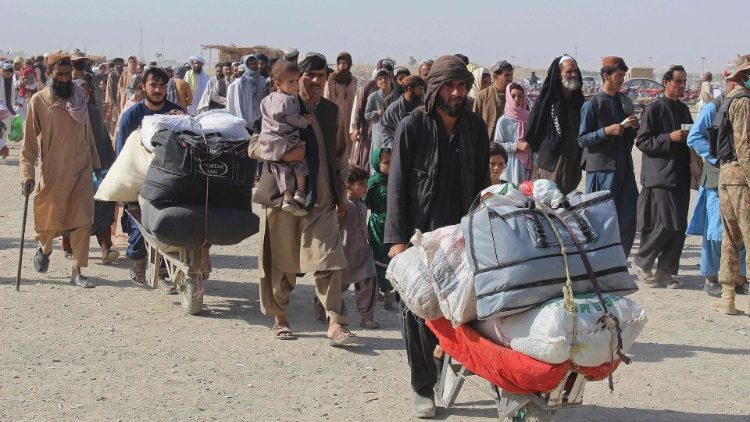PESHAWAR: Afghan Consul General Mohibullah Shakir has praised Pakistan’s four decades of hosting Afghan refugees. Speaking to journalists in Peshawar, he said the Taliban-led government is fully ready to help its citizens return home.
Shakir informed that a special commission has been created to manage the repatriation of Afghan refugees. Camps have already been set up inside Afghanistan. He assured that transport and basic services are being provided to ensure a smooth return for Afghan refugees. “No difficulties will be faced during the transition,” he promised.
At the beginning of March, Pakistan announced the cancellation of 800,000 Afghan Citizen Cards (ACC). This marked the second phase of a deportation drive that had already sent 800,000 undocumented Afghan refugees back across the border.
Pakistan has been hosting millions of Afghan refugees for almost fifty years. In recent years, many returned voluntarily. Still, over 2.1 million Afghan refugees continue living in Khyber Pakhtunkhwa (KP) and other regions.
Pakistan had given a deadline of March 31 for all undocumented Afghan refugees and ACC cardholders to leave. This move came amid a rise in terrorist attacks across the country.
Last year was the deadliest for Pakistan in nearly a decade. Over 1,600 lives were lost in violent incidents, with half of the victims being security personnel, according to the Centre for Research and Security Studies.
Pakistan has accused the Taliban government of failing to eliminate militants hiding on Afghan soil. However, the Taliban administration denies these claims.
The Taliban leadership has repeatedly urged for the “honourable” return of Afghan refugees. Prime Minister Hassan Akhund has appealed to host countries not to expel Afghan citizens forcefully.
Addressing the media, Shakir drew a religious parallel. He said Pakistan treated Afghan refugees with the same compassion shown by the “Ansar” towards the “Muhajireen” in early Islamic history.
He added that Afghan children studied alongside Pakistani students and moved freely. However, he stressed that now was the right time for Afghan refugees to go back to their homeland.
The Afghan envoy also mentioned that Taliban Supreme Leader Haibatullah Akhunzada has assured that peace has returned to Afghanistan. “The time of conflict has ended,” he said.
Land has been reserved for Afghan returnees in Kunar and Nangarhar provinces. Job opportunities in farming and trade are also being prepared for Afghan refugees returning home.
“Pakistan will always remain our brotherly nation,” Shakir stated. “But now it is time to rebuild our country with the same strength we once showed in hardships.”
Current Afghan Refugee Numbers in Pakistan
According to figures shared with Khyber News, 2.1 million Afghan refugees are presently in Pakistan.
Sources from the Ministry of States and Frontier Regions (Safron) confirm that 1.4 million Afghan refugees are officially registered. Another 800,000 hold Afghan Citizen Cards, though their status is now considered illegal.
The government, however, estimates the real number of Afghan refugees at around three million. All are scheduled for repatriation under the illegal foreign nationals’ deportation plan this year.
Four Categories of Afghan Nationals in Pakistan
Afghan refugees fall into four main groups:
The first group includes those who fled past conflicts and received Proof of Registration (PoR) cards. About 1.3 million fall into this category, with the cards valid until June 30, 2025.
The second group comprises Afghan refugees who were issued Afghan Citizen Cards (ACC) in 2016. About 800,000 are in this category and are now being sent back.
The third group consists of Afghans who arrived after the Taliban regained power in 2021. Although Pakistan estimated 600,000 arrivals, the UNHCR records show only 200,000 officially registered asylum seekers.
The fourth group includes undocumented Afghan refugees. They neither possess PoR nor ACC cards. Many in this group married Pakistanis and obtained fake identity cards. Nadra has been cancelling these fake IDs in recent years, declaring them illegal residents.
The Afghan refugees’ return marks a new chapter for both nations, with hopes for a peaceful future in Afghanistan.


